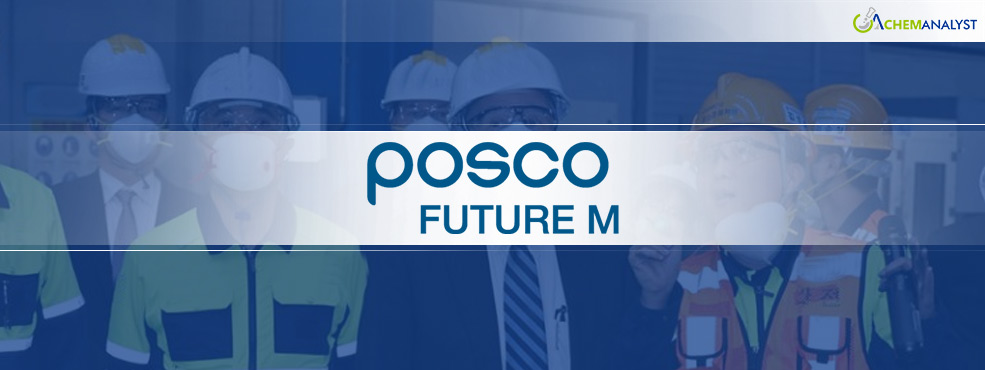Welcome To ChemAnalyst

POSCO Future M has communicated to U.S. Ambassador to Korea Philip Goldberg about challenges it is facing in its business, largely attributed to the U.S. government's decision to implement a two-year grace period on the Foreign Entities of Concern (FEOC) restrictions as part of the Inflation Reduction Act, according to a report by The Korean Times. These FEOC restrictions deny subsidies for the purchase of electric vehicles (EVs) that feature batteries containing critical minerals sourced from specific foreign entities, notably China.
During the ambassador's recent visit to POSCO Future M’s anode materials plant in Pohang, North Gyeongsang Province, CEO Yoo Byeong-og emphasized the need for consistency in U.S. policies. The recent U.S. decision made in May to continue subsidizing EVs that use batteries incorporating Chinese graphite until the end of 2026 has negatively impacted POSCO Future M. Prior to this ruling, the company anticipated that its products could replace anode materials sourced from Chinese suppliers, who currently dominate the global market.
The implications of this decision have been significant for POSCO Future M, leading to declining profits in its anode materials segment and reduced capacity utilization. While domestic battery manufacturers have welcomed the U.S. decision—allowing them to utilize cheaper Chinese graphite for a longer period—POSCO Future M finds itself at a disadvantage. CEO Yoo stated, “Even though POSCO Future M is the only option to stabilize the U.S. anode materials supply chain, we have been facing difficulties due to the delayed FEOC restrictions.”
Ambassador Goldberg highlighted the importance of establishing supply chains that are not reliant on any single country or susceptible to unfair trade practices. This aligns with broader U.S. goals to enhance supply chain resilience, particularly concerning critical minerals and EV battery production. Earlier this year, executives from POSCO Future M met with U.S. Under Secretary for Economic Growth, Energy, and the Environment, Jose Fernandez, in Seoul. During that meeting, they introduced their battery materials as part of the U.S. government’s initiative to stabilize supply chains for EV batteries and critical minerals.
In this context, POSCO Future M has positioned itself as a vital player in the U.S. supply chain for anode materials. However, the current policy landscape presents significant hurdles for the company, especially as its Chinese competitors continue to benefit from existing subsidies. The U.S. government’s recent decision to allow the use of Chinese graphite until 2026 may provide short-term relief for domestic manufacturers but poses long-term challenges for POSCO Future M as it strives to establish itself as a competitive alternative.
The ongoing discussions between POSCO Future M and U.S. officials, including Ambassador Goldberg, reflect the critical need for open communication and collaboration as both sides work toward mutual objectives of stability and growth within the EV battery supply chain.
We use cookies to deliver the best possible experience on our website. To learn more, visit our Privacy Policy. By continuing to use this site or by closing this box, you consent to our use of cookies. More info.
